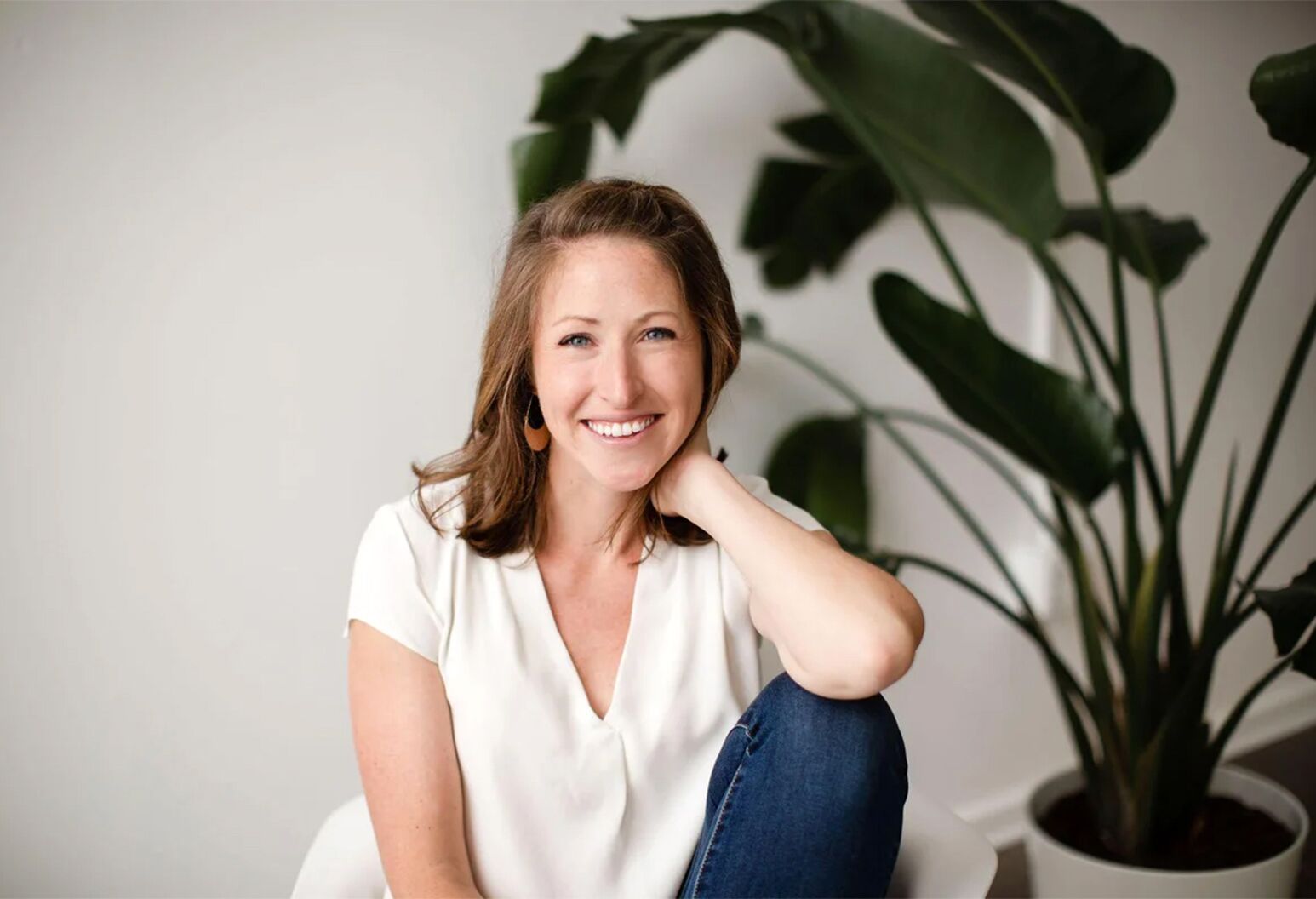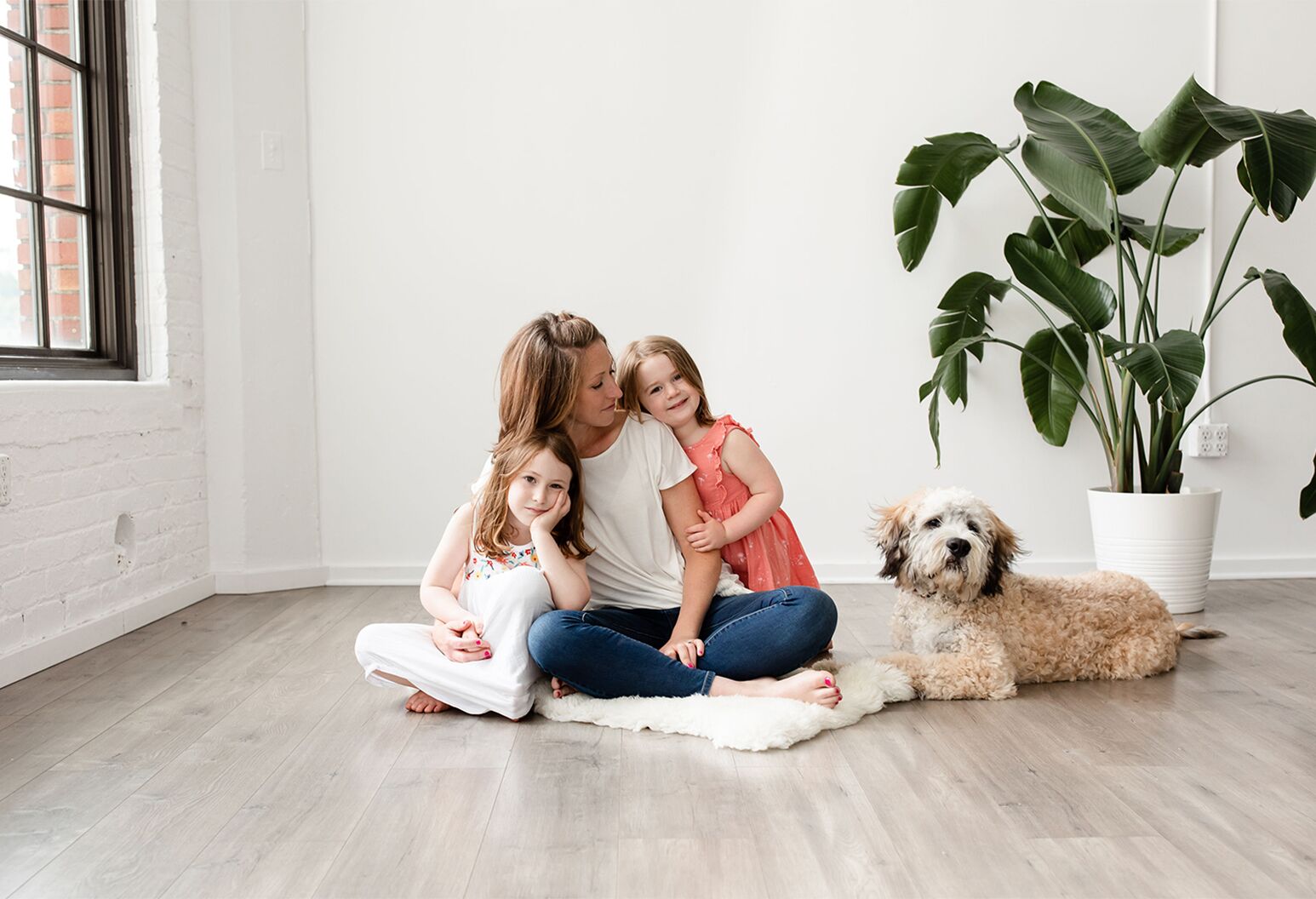emotional wellness
Why Did I Lose My Cool? A Therapist Explains

As a child she felt anxious and unsure, now she helps children learn self-esteem and resilience.
6 min read
When Kristi Coppa thinks back to her childhood, she recalls years spent feeling anxious, struggling with a poor self-image, and a constant feeling that she needed to please others above all.
But while she’s since been able to put a name to her struggles—undiagnosed anxiety and low self-esteem—she says that where her mental health was only serves to better highlight how far she’s come. That’s because as an adult, Coppa is now a mindfulness coach, yoga teacher, mom, cancer survivor, and founder of Wondergrade—a company that helps families learn skills such as mindfulness, resilience and, yes, self-esteem, through apps and activities.
So how do you go from not believing in yourself at all to creating your own company? We asked Coppa to share her journey and tips to find out just that.
Coppa knows now that she has anxiety, but when she was a kid, she didn’t have a name for what was causing her to lie awake at night. “I thought there was something intrinsically wrong with me,” she recalls, “that how I saw the world was wrong and that everyone else had it figured out but me.” What’s more, she says she didn’t feel encouraged by her family to talk about it—and instead chose to keep it hidden.
She compensated by trying to be perfect and make everyone around her happy. But despite getting perfect grades, gaining praise as a good athlete, and even winning awards, Coppa says, “I felt like a fraud all the time.”
When the time came to choose a career path, Coppa chose nursing and then specialized in oncology, not because she loved it, but because it impressed her family. She wanted to make them proud. While she liked helping people, she also explains she felt like the job helped her image stay above this brokenness she felt.
It came to a head when she left nursing to be a stay-at-home mom to one and then two daughters. Her postpartum depression was bad after her first daughter, but she didn’t ask for help, used to keeping her low-self-image to herself.
Like what you’re reading? Subscribe to our newsletter and get the same great content delivered straight to your inbox!
By providing your email address, you agree to receive email communication from The Well.
Finally, Coppa couldn’t hide anymore. She was having panic attacks at the grocery store and was still managing a 2-year-old. “I couldn’t go into a fog and ignore it anymore,” she recalls. “So instead, I became an advocate for myself and I said, ‘I’m figuring this out.’”
Still, the process wasn’t always easy or comfortable. She sought the help of a specialist, and medications to help her adjust—but both took time and some fine-tuning to get just right. “I had a hard time finding a therapist I liked, but I stuck with it, I started meditating, I started exercising, taking care of myself. I really reached out for help. I talked to my friends and asked them to keep me accountable.”
Soon, she felt better. And when she felt better, she parented better—which made her feel better about herself. She became an advocate about postpartum depression and mental health in general.
But it wasn’t until later that the biggest change occurred. Coppa’s daughter was in a yoga class at her preschool and they were offering teacher training. When Coppa told her husband about it, he said she had to do it, that she hadn’t seemed so excited about something in a long time. It wasn’t the exercise that had Coppa excited, it was the emotional regulation piece.
It was like she felt a lightbulb going off in herself.

“I thought, what if we could tell kids to actually feel OK about their feelings and guide them from a young age,” recalls Coppa. Ironically though, the confidence to start a company that gave families tools to learn about how to build their confidence and self-esteem, taking a big risk, wasn’t there yet. “The website was live, it had a lot of content, it was a registered business, and it was up a whole year before I told a single person. I don’t know what I was so afraid of. I didn’t even tell my mom.”
“I was confident in the work I was doing,” she says, “but I was scared about what people would think of it, especially the people close to me.” However, she began telling people, getting positive feedback, and, one day, felt brave and announced Wondergrade publicly. Since then the company has grown, released an app, and continues to grow.
Still, despite her personal growth and successes, Coppa says anxiety still comes to visit from time to time. “Honestly, it’s still a struggle to have a dream that’s mine, especially as a woman in society,” she says. “We’re taught to be helpers, which is ironic because my company is all about helping people, and not have something of our own.”
However, Coppa had one clarifying experience that helped her befriend her anxiety and let it go. She was diagnosed with a rare form of leukemia during the pandemic and told she may only have up to 10 years to live. She was 35, with young children, so not getting to see her daughters grow up was a big loss to consider.
“My insecurities suddenly felt so small,” she says.
So she got treatment and focused on her family. Then, she went into remission. And even though she no longer has a leukemia diagnosis telling her how long she has to live, she says, “No one knows how long they have. I could have one year to live. I could die tomorrow. I don’t want to sit around and wait to be happy. I want to do it now.”
Coppa says most importantly, she’s careful to be conscious of her own internal dialogue. “I’m a lot more aware of the stories I tell myself these days,” she says. “If I'm telling myself the story that I’m a fraud or I don’t belong, I admit it to myself and then choose to keep going. Feeling it doesn’t make it true.”
What’s more, she says that sometimes we have to sit with our insecurity. “I have a very deep belief that the work I want to be doing is more important than my discomfort. I’d rather be uncomfortable and bring the work to life than not have the work happen.”
The Well is Northwell Health’s commitment to the future of health care. In this time of information overabundance, much of which is inaccurate, unhelpful, or even difficult to understand, Northwell Health is on a mission to make a difference as an honest, trusted, and caring partner. The site connects with consumers to provide them with personalized content that reduces their stress, makes them laugh, and ultimately feel more confident and capable on their healthcare journey.